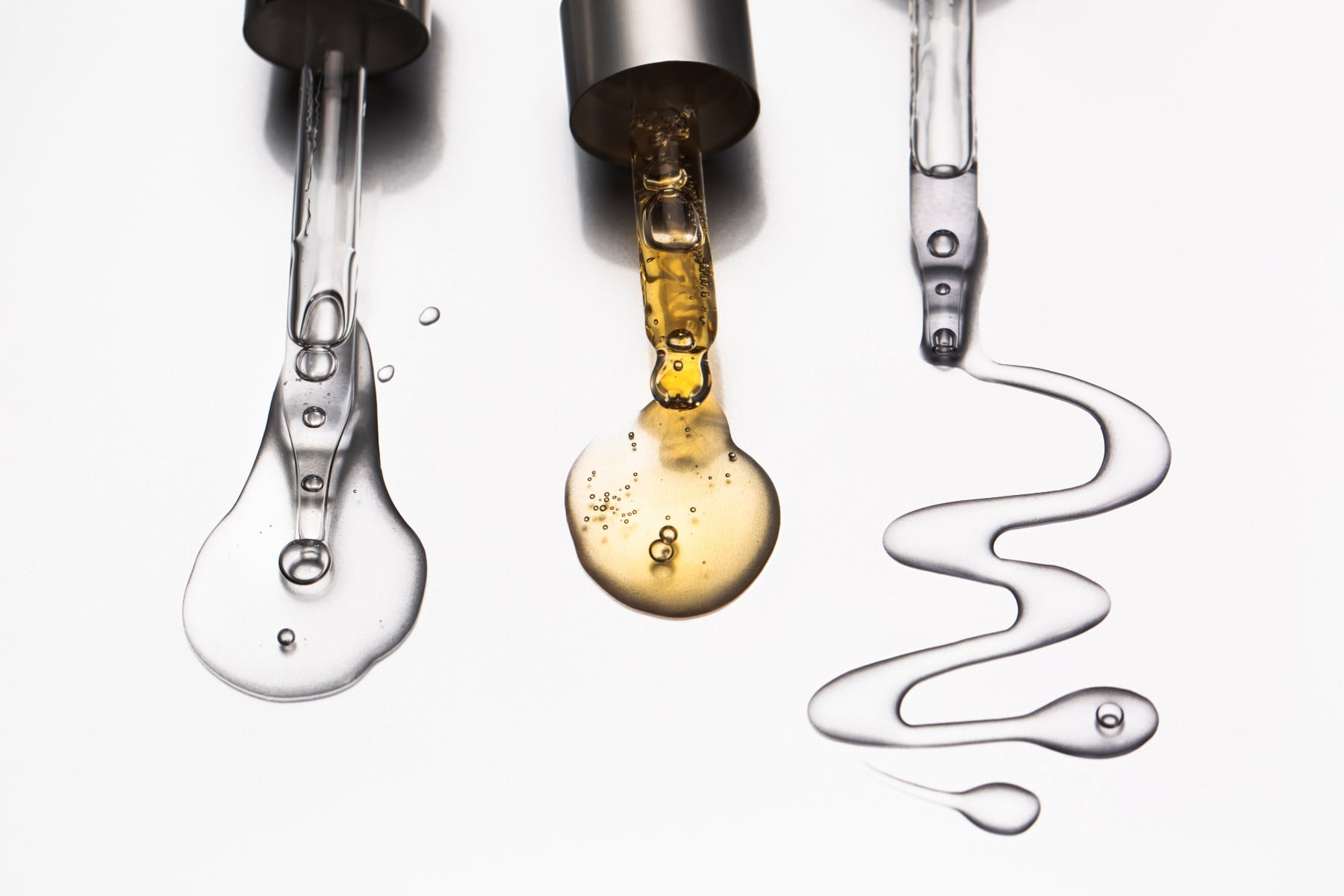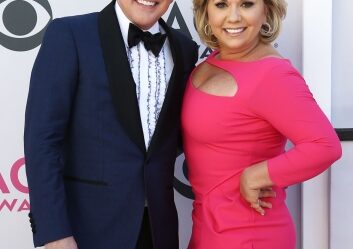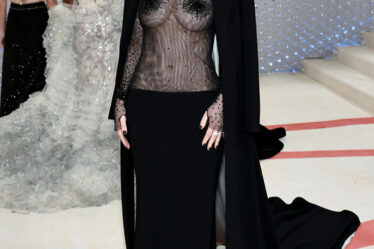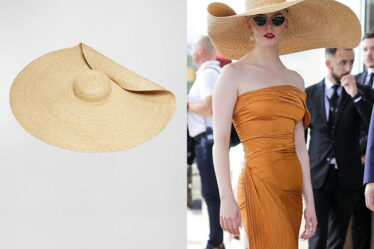
The beauty industry just can’t seem to quit anti-ageing.
The term began to fall out of favour in the late 2010s, a movement that gained further traction after American beauty magazine Allure announced in 2017 it would drop “anti-ageing” from its pages for good. In an issue covered by septuagenarian actress Helen Mirren, then-editor-in-chief Michelle Lee wrote in her editor’s letter that she wanted to challenge the rest of the industry to do the same.
“Whether we know it or not, we’re subtly reinforcing the message that aging [sic] is a condition we need to battle — think anti-anxiety meds, anti-virus software, or anti-fungal spray,” she said. (Ironically, a glance at this article on Allure’s website today showed an advert for a Eucerin face cream, claiming “98 percent confirm younger-looking skin”.)
The call to action worked and brands followed suit. In 2018, Neutrogena proclaimed “we’re not anti-ageing. We’re anti-wrinkles,” in a campaign,” while others adopted terms like “regeneration”, “renewal” and “radiance” or even “pro ageing”. “Glow” became very popular.
But the tide is turning once again, and anti-ageing is making a comeback, said Clare Varga, head of beauty at trends agency WGSN. While some brands blatantly use the expression – prestige skincare lines Paula’s Choice and Dr. Barbara Sturm have multiple “anti-ageing” serums – others use the expression in marketing copy, and focus product names and claims around wrinkle reduction, or mimicking the effects of injectables.
In August, Skinceuticals released its new P-Tiox Wrinkle-Modulating Peptide Serum with a campaign about how the serum partners well with Botox — 25-year-old model Sofia Richie Grainge is the brand’s ambassador. The “green” beauty brand Emma Lewisham’s newly launched Supernatural Vitale Elixir is marketed as “nature’s Botox” with claims to reduce wrinkles by over 90 percent in 24 hours, while luxury skincare label Révive’s top-selling age-defying Intensité range includes the $620 Volumizing Serum Ultime, dubbed the “injection-less answer” to lost facial volume.
And as is the case with many of today’s top beauty trends, this one, too, is driven by younger shoppers.
“[Gen-Z] have much more of a solution-based attitude. There doesn’t seem to be any shame in saying, ‘I don’t like my forehead lines’,” said Dominique Temple, founder of the public relations and brand-building firm DT Consulting, which works with the likes of Rhode and Noble Panacea.
To toe the line carefully, brands need to present their marketing claims in a direct and digestible way, making sure to communicate their products unique selling points – without using language or expressions that feel outdated or even cause offence.
Practical Makes Perfect
Part of the resurgence is to do with a wider cultural paradigm shift. The Millennial era of the internet in the 2010s brought forth the body positivity movement and a general push towards inclusivity. At the time, it hadn’t been long since Dove’s Real Beauty campaign shook up industry standards, and brands were following in their footsteps, telling consumers that their imperfections were something to be cherished.
Now, it’s Gen-Z that is shaping online discourse and capturing marketers’ attention. And they are much more about self-improvement than self-acceptance.
“It got to the stage where [not using anti-ageing] was almost demonising people who did want to do something about the ageing process,” said Varga. “This is much more, ‘let’s just call it what it is.’”
This more straightforward approach speaks to consumer desires. The first-person essay about coming to terms with a bothersome facet of one’s personality or appearance of the 2010s has been succeeded by the TikTok series documenting one’s self-improvement journey, be that through an exercise challenge, a career refresh or more often than not, a “glow up” where the creator documents their “getting hotter” process, receiving numerous beauty treatments in the process.
Alice Hart-Davis, founder of the British cosmetic medicine site The Tweakments Guide, said she always found it “tirestome” that the term “anti-ageing” became verboten.
“It’s a really easy signalling phrase that tells somebody what a product is… if a customer isn’t a beauty aficionado, they will ask, ‘what is this thing? Is it an anti-ageing treatment?’” she said, adding that it was always a “mad bit of doublethink” to try and market products with anti-ageing properties whilst claiming to be neutral about the concept of ageing.
While euphemisms can be used to avoid direct usage of the term – Hart-Davis said “smoothing” was a common one – “anti-ageing” and “anti-wrinkle” remain practical descriptors, and are perhaps less likely to cause offence to younger shoppers, as long as the product has a robust methodology for proving the claim.
The author has shared a Flourish data chart.You will need to accept and consent to the use of cookies and similar technologies by our third-party partners (including: YouTube, Instagram or Twitter), in order to view embedded content in this article and others you may visit in future.
Facing the Future
Anti-ageing’s resurgence is also about Gen-Z’s fanatical obsession with preventative skincare. But while they tend to start wrinkle-smoothing injections at younger ages than previous generations, and are voracious consumers of “prejuvenation” services like laser facials, they also have a greater understanding of the potential and the limits of topical products.
One of the push backs against the term “anti-ageing” was that the claims beggared belief, said Varga. But recent advancements in formulations, as well as a deeper consumer understanding of how products like sunscreen and retinoids work has made the claims more plausible.
“Younger consumers are much more savvy about sun damage and other lifestyle factors that can age the skin,” said Varga. It’s a shift away from ‘hope in a jar’-style marketing that the beauty industry used to favour, with opaque product names and small consumer trials used to Potemkin effect.
Modern brands such as The Ordinary and Skinceuticals pride themselves on their clinical results, and use education around ingredients as a key marketing pillar.
Varga said she expects “anti-aging” to become a more neutral term going forward, with less shame than it previously carried.
“Despite the popularity of inclusive language, when people are looking for a product, they say they want ‘anti-ageing’,” she said.
Sign up to The Business of Beauty newsletter, your complimentary, must-read source for the day’s most important beauty and wellness news and analysis.



